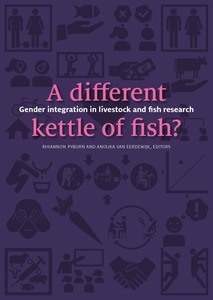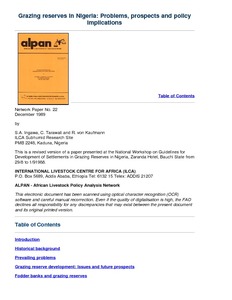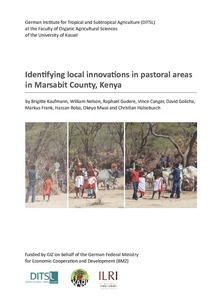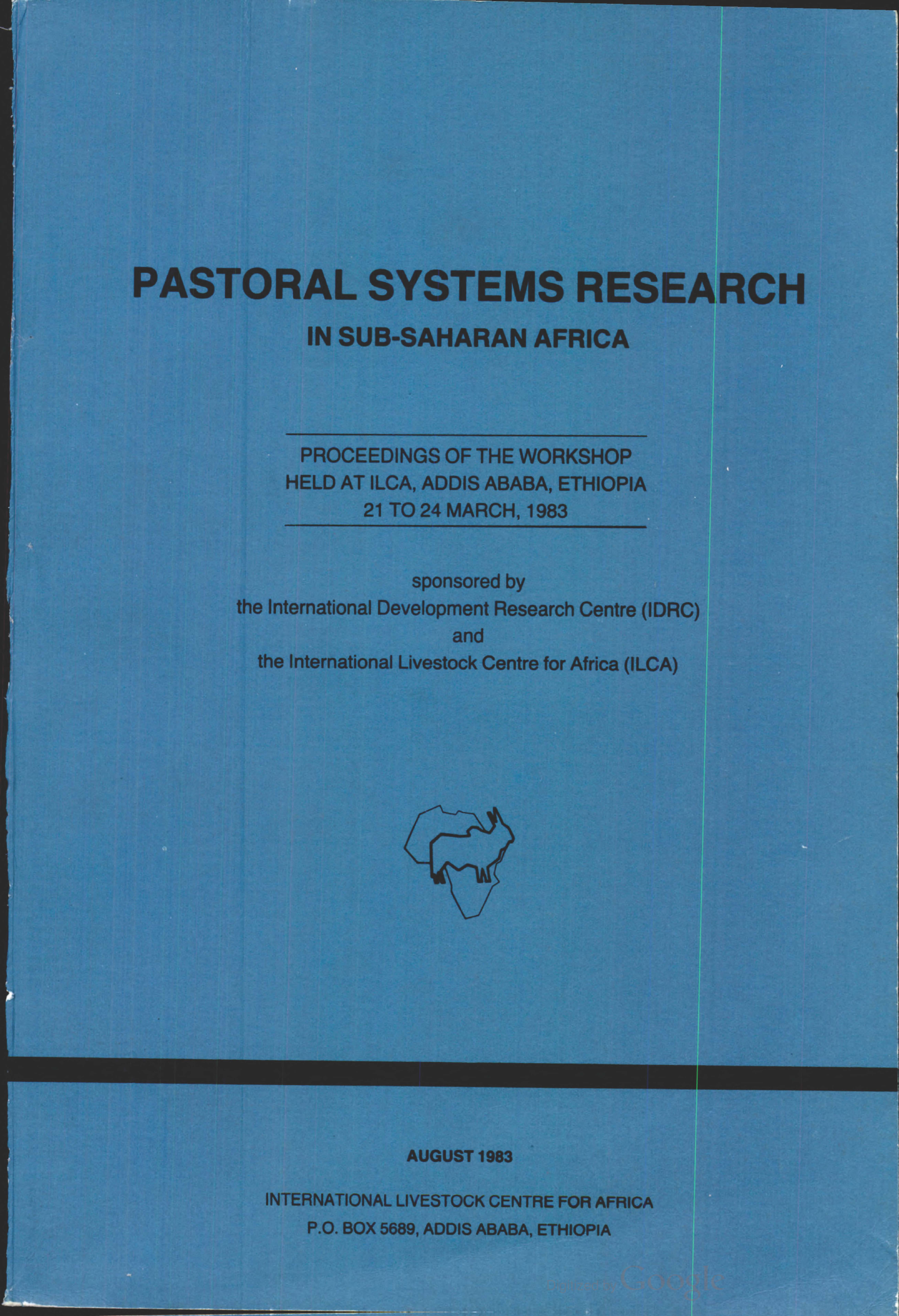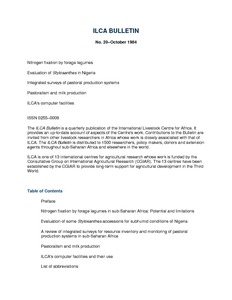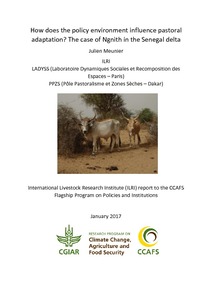Grazing reserves in Nigeria: Problems, prospects and policy implication
Grazing reserves in Nigeria are areas set aside for the use of pastoralists and are intended to be the foci of livestock development. The stated purpose of grazing reserves is the settlement of nomadic pastoralists they offer security of tenure as an inducement to sedentarization through the provision of land for grazing and permanent water. This paper reviews problems associated with grazing reserves and offers suggestions to make them more productive and relevant to the needs of the intended beneficiaries.
Heat, rain and livestock: Impacts of climate change on Africa’s livestock herders
What’s the future for Africa’s livestock herders as our climate changes, becomes less predictable, heats up? How can scientific research help remote pastoral communities? Among the poorest of the world’s poor, herders supply milk and meat not only for themselves but for large numbers of other poor people. Although their animals produce few of the greenhouse gasses harming the earth, these people will be among those most hurt by the climate changes we expect. Population growth and land degradation are already causing problems over much of the continent’s traditional rangelands.
Identifying local innovations in pastoral areas in Marsabit County, Kenya
Household studies in pastoral systems research
Reviews differences between crop production and pastoral production, considering their effects on research possibilities; and describes basic methods that may be used to collect household level data, esp. informal & formal surveys, enumeration and the use of questionnaires.
How does the policy environment influence pastoral adaptation? The case of Ngnith in the Senegal delta
Human and animal vaccination delivery to remote nomadic families, Chad
Vaccination services for people and livestock often fail to achieve sufficient coverages in Africa's remote rural settings because of financial, logistic, and service delivery constraints. In Chad from 2000 through 2005, we demonstrated the feasibility of combining vaccination programs for nomadic pastoralists and their livestock. Sharing of transport logistics and equipment between physicians and veterinarians reduced total costs. Joint delivery of human and animal health services is adapted to and highly valued by hard-to-reach pastoralists.
Herd management and breeding practices of sheep owners in a mixed crop-livestock and a pastoral system of Ethiopia
An exploratory survey was undertaken to understand sheep production system, breeding practices and selection criteria for Ethiopian Menz and Afar sheep breeds in their home tract as a step towards developing sustainable sheep breeding strategies. The mean sheep flock size was 31.6 in Menz and 23.0 in Afar area. Half of the pastoralists (Afar) and one-fifth of smallholder farmers (Menz) do not have a breeding ram. Mating was predominantly uncontrolled. Higher chance of mixing sheep flocks was reported in most of the seasons.
IBLI project film: Rural smallholder farmers benefit from insurance
A training film made by Mojo for Index-Based Livestock Insurance (IBLI) project, Marsabit, Kenya.
Herders to benefit from livestock insurance
Thousands of livestock herders across the arid North Eastern Kenya can now rest secure, thanks to a new initiative that will shield them against loss of their livestock to drought. For the first time ever, a livestock insurance scheme has been introduced which will make use of satellite images to detect areas that could suffer from livestock loss.
IBLI—opening up new frontiers for pastoralists in northern Kenya
Opening up new frontiers for Pastoralists in Northern Kenya. Wajir Index Based Livestock Takaful (IBLT) payout ceremony, March 2014.

